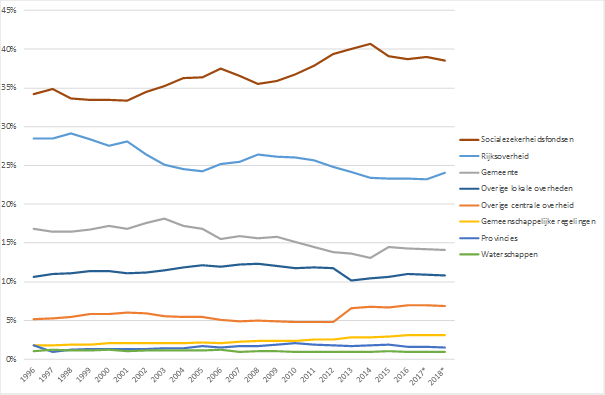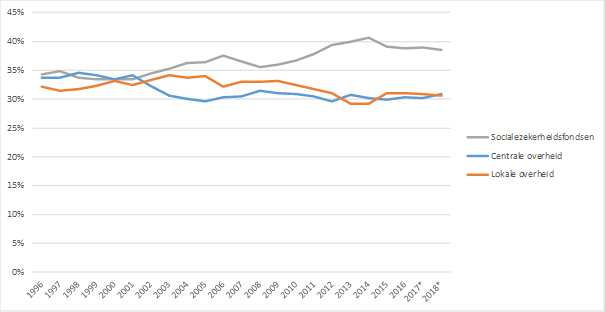More responsibilities for local government, but no increase in funding share

New figures show that Dutch government spending has not shifted away from the central government since 1996, despite decades of decentralization policies. The research by Prof. Maarten Allers and Prof. Klaartje Peters was published in the journal Economisch Statistische Berichten (ESB) on 25 July.
Maarten Allers is Professor of Economics of Sub-National Government at the University of Groningen (UG) and director of the University’s Centre for Research on Local Government Economics (COELO). Klaartje Peters is Professor by special appointment of Local and Regional Governance at Maastricht University, and also works as an independent researcher and publicist.
Surprising results
Allers is surprised by the results. ‘For years, the policy has been for local governments to carry out more and more tasks which were previously the responsibility of the central government. That policy is even enshrined in the Municipalities Act and the Provinces Act. Policy areas in which implementation has recently been passed to local government – like welfare, social support and youth care – are very labour-intensive. So, you would have thought that the national government would be spending less, and local governments more.’
The researchers set out the national government’s and local governments’ share of spending over recent decades. Remarkably, the municipalities’ share saw only limited increases in 2015, the year of the great decentralization of social policy. What is more, national government spending did not decrease as a result of these changes, but remained at the same level. In contrast, decentralization would normally be expected to mean both that municipalities would get more responsibilities and therefore more money, and also that the central government would spend less.
So, has Dutch government spending shifted away from the centre on the whole? It seems not. In 1996, the central government’s share of spending was roughly as large as local governments’, and that has never changed in the intervening years.


More news
-
10 February 2026
‘Regeneration starts where courage meets imagination’
-
09 December 2025
Are robots the solution?
